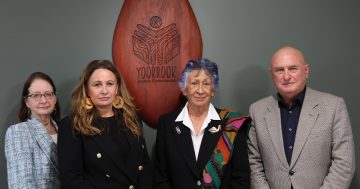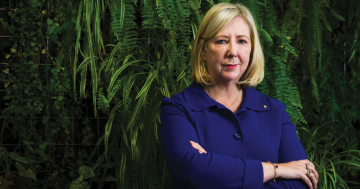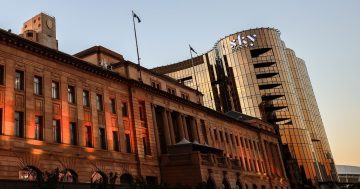
Australia’s Criminal Code recognises the following practices as offences: slavery, servitude, forced labour, deceptive recruitment, forced marriage, debt bondage, trafficking in persons, trafficking in children and domestic trafficking in persons. Photo: File.
As part of the Federal Government’s response to the 2023 independent review of the Modern Slavery Act 2018, the Human Rights Law Centre (HRLC) has made a submission calling for the proposed Anti-Slavery Commissioner to be granted more power to investigate and enforce compliance under the law.
Two joint committees had recommended the establishment of an Anti-Slavery Commissioner before the Modern Slavery Act came into law on 1 January, 2019. But it wasn’t until a statutory review discussing the role was published at the beginning of last year that an amendment was put before parliament introducing the independent statutory office holder within the Attorney-General’s portfolio.
The government announced in the 2023-24 Budget that it would provide $8 million over four years towards establishing an office that could work across government, industry and civil society in supporting compliance with the Modern Slavery Act. Every year it would use $2m to improve transparency in supply chains and help the fight against modern slavery both domestically and internationally.
While the HRLC welcomed the new office introduced following the independent statutory review, which included 29 other recommendations to strengthen the nation’s Modern Slavery Act, it said the commissioner must have the ability to:
- Monitor and enforce compliance with the Modern Slavery Act (including through the issuing of penalties or infringement notices)
- Undertake investigations to detect and expose cases of modern slavery
- Receive complaints and support workers subjected to modern slavery to seek redress.
HRLC legal director Keren Adams said the office would give a much-needed boost to efforts addressing forced labour within Australia and in the global supply chains of domestically owned companies.
“However, it is critical that the Anti-Slavery Commissioner has the necessary powers and resourcing to undertake this work effectively and drive real changes in corporate practices,” she said.
“Every person should be able to work in freedom and dignity, without threats of violence, coercion or abuse. But we know that in Australia today, up to 41,000 people are estimated to be living and working in conditions of modern slavery.”
This figure was procured from Walk Free’s 2023 Global Slavery Index, which found that as of 31 August, 2022, 1.6 persons per 1000 were living in modern slavery within Australia and more than 45 million people were affected globally. In 2018, the index estimated there to be only 15,000 people living in Australia under modern slavery, showing a substantial increase over the past six years.
The statutory review’s stakeholder submissions, such as that of the HRLC, were largely in support of the Anti-Slavery Commissioner’s establishment. Yet they were varied in their understanding of the powers and functions the role should have.
The Australian Human Rights Commission agreed with the HRLC, for the office to be able to detect, investigate and prosecute non-compliance. But the Law Council of Australia said an Anti-Slavery Ombudsman may be more appropriate, given its functions and powers were better recognised and understood in the current legal framework.
Senator Nick McKim said the Greens supported the amendment, but noted it lacked the inclusion of an independent office of oversight.
The Business Council of Australia did not support an office being established alongside the role of commissioner, as it believed it would create another layer of bureaucracy, cost and regulation for business.
The Coalition was also against the office, stating that many of its proposed functions were already covered by the Interdepartmental Committee on Human Trafficking and Slavery (IDC).
Among other recommendations made in the review were the introduction of penalties for companies that fail to report under the law, and a mandatory requirement for companies to undertake human rights due diligence so they could identify and address modern slavery within their operations and supply chains.










